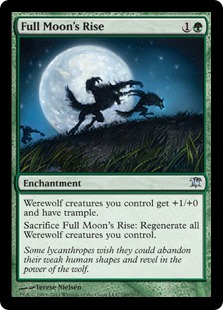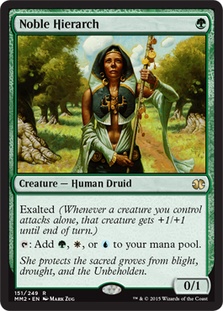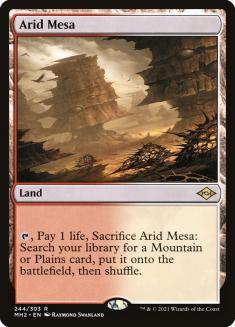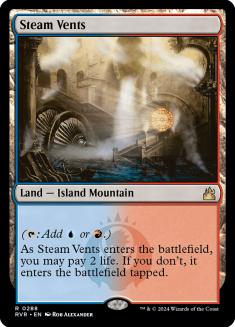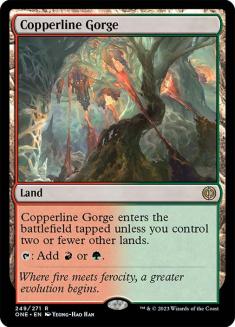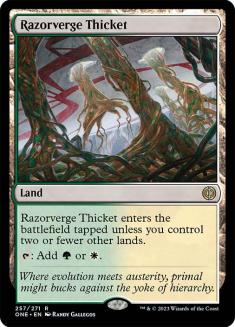Imagine that you just 10-0’d Day 1 of a Grand Prix. Your deck was insane; even you knew it, having never opened a sealed pool of Gatecrash in your life. You played some high quality players, but it wasn’t particularly close, as your deck (see below) was a literal Gift of Orzhova. You drift off to sleep in a bustling room of eleven people that has a distinct odor of pizza and feet, but it’s okay because you know you’re going to win the GP and it will all be worth it in the end—plus you’re sleeping next to your best buddy, Peter Ingram, and he’s a great snuggler.
You count extort triggers like they’re sheep as you pass out.
***
You awake in a slight panic, as you feel a little too rested for the five hours of sleep
that you expected to get. You search frantically for your phone, which was supposed to wake you up at 8:15 so you could make it to the 9:00 player meeting.
You flip the pillow. Nope.
You reach down between the bed and the wall. No phone, just one of the many vagrants jam-packed into the dark crevasses of the room trying to find a place to “sleep.”
Maybe it’s somewhere under the sheets. You feel around with your hand, but it just won’t do—you have to lift up the sheets.
It’s then that time seems to slip into slow motion. As you gaze with horror at the monstrosity in front of you, you begin to wish you had never come to Pittsburgh, that you had never begun playing Magic, that you had never been born. What’s in front of you is so horrifying that a lesser man would crumble.
Waiting for you under the sheets is Pete’s. Bare. Naked. Ass. Thoughts race through your head, such as:
“Why isn’t Pete wearing pants, let alone underwear?”
And:
“Is it legal to burn hotel sheets?”
Upon finding your phone, you discover that it’s 7:55, but there’s no way you’re going back to sleep after that.
This was how Day 2 of GP Pittsburgh began for me; clearly, it could only get better from there on out.
I traveled to the GP after reeling off a Modern PTQ win with a 62-card Kiki Pod deck. Yes, 62 cards.
Creatures (32)
- 4 Birds of Paradise
- 2 Kiki-Jiki, Mirror Breaker
- 4 Wall of Roots
- 3 Kitchen Finks
- 1 Murderous Redcap
- 1 Glen Elendra Archmage
- 4 Noble Hierarch
- 1 Qasali Pridemage
- 1 Cunning Sparkmage
- 1 Wall of Omens
- 1 Spellskite
- 2 Deceiver Exarch
- 1 Phantasmal Image
- 1 Strangleroot Geist
- 3 Restoration Angel
- 1 Zealous Conscripts
- 1 Thragtusk
Lands (23)
Spells (7)

When I build decks, I tend to treat cards like my adopted children. Playing with them creates a father-son bond that you just can’t break. How could I look at myself in the mirror after sending Strangleroot Geist to the land of forgotten children? All he wanted for his birthday was a PTQ win. Who was I to deny his cute, little sideways face?
Playing in my fifth PTQ finals (with zero wins) of over twenty PTQ Top 8s, I can’t say that I normally would have had much faith in myself, but that day something was different. I sat down against what was likely a very poor matchup (Eggs) and played to my best ability without the obsessive thoughts that would otherwise have rattled me.
In the past, I really put a lot of pressure on myself. I would analyze the mistakes I made in high-pressure situations for months, but that day I just sat down and played Magic until I lost. Each round was a blank slate—I treated each game like it was round 1 and thus my “round 1” philosophy was born. Round 1 obviously marks the beginning of a tournament, but it is also the round where everyone playing is an equal; each person has the potential to win the tournament and there are no tiebreakers yet. All the pressure of playing for Top 8 or losing in the finals seem distant to someone playing round 1. Likewise, I’m sure that someone playing in the finals can barely remember their round 1.
The point is that round 1 is usually the least stressful of your rounds and your mind is most free to play Magic to its best ability. On the day of the PTQ, “tilt” just wasn’t in my vocabulary, nor was “lose.” This is the sort of ideology that I brought to GP Pittsburgh.
Winning against the boogeyman of the format was pretty exhilarating considering I mulliganed to five and kept the following hand on the draw:
My first draw was Birthing Pod.
My second draw was Negate.
My third draw was a Deceiver Exarch.
My fourth draw was… Well, it didn’t matter very much because I had just won the PTQ, but there could have been a ham sandwich packed into the sleeve for all I cared.
My opponent went all-in on his turn 4, and his Faith’s Reward, along with his Pro Tour dreams, were promptly Negated.
I’d played on the Pro Tour three times before this, but this was my first PTQ win. It seemed to lift a curse that I had put on myself, a mental block that I couldn’t get past. I just couldn’t close a tournament, but here I was.
So I was qualified for Pro Tour Dragon’s Maze and left to ponder if I should even go to the Grand Prix. After checking the event website, I thought that Pittsburgh fed into Pro Tour Dragon’s Maze, but this was simply not the case. There was an error, and the information which I saw was incorrect; the Grand Prix actually qualified the Top 8 players for Pro Tour Dublin, but I was unaware.
As luck would have it, I had already locked myself into going, and my good friend and testing partner Frank Skarren had just won a Grand Prix. I casually thought to myself, “Perhaps I should try to do that as well.” It was bound to be a memorable experience, and I was hungry for a win, so I wasn’t too upset with the decision before I knew that it could qualify me for PT Dublin.
When I was 13-1-1 and a lock for Top 8, I was informed by a friend that there was a high chance that the information on the site was incorrect. I was ecstatic but ever skeptical of my good fortune, so I decided to ask a group of judges. This is how our conversation played out:
Me: Excuse me, do any of you know which Pro Tour this Grand Prix qualifies the Top 8 players for?
Judge 1: Hmmm, I don’t think that Grand Prix qualify you for the Pro Tour anymore.
Judge 2: Oh, this definitely qualifies you for Pro Tour France…I think…
Judge 3: Let me go check on the website.
(Never returns.)
Judge 4: What’s a Pro Tour???
In the end, I confirmed that the event did indeed qualify me for PT Dublin. Qualifying for two Pro Tours in a three-week stretch is an awesome feeling.
Match History
Swiss
Round 1: Bye
Round 2: Bye
Round 3: Win vs. Bray, Scott
Round 4: Win vs. Williams, Chris
Round 5: Win vs. Corley, Mike
Round 6: Win vs. Sharfman, David
Round 7: Win vs. Katz, Ben
Round 8: Win vs. Cuneo, Andrew
Round 9: Win vs. Lewis, Aaron
Round 10: Win vs. Jacob, Michael
Round 11: Win vs. Lee, Wonman
Round 12: Win vs. Johnson-Epstein, Jasper
Round 13: Loss vs. Derczo, Michael
Round 14: Win vs. Derczo, Michael
Round 15: Draw vs. Carrasco ii, Adam
Round 16: Draw vs. Froehlich, Eric
Top 8
Quarterfinals: Win vs. Kovac, Chase
Semifinals: Win vs. Froehlich, Eric
Finals: Loss vs. Parker, Brock
Sealed Deck
This is the sealed deck that led to my 10-0 on Day 1:
To use the Sickbrew Sealed widget, click (don’t drag) individual cards from the pool into either the Junk, Pool, or Deck sections. You can click multiple cards at a time to move them all at once! Sort by cost, rarity, and color.
- 1 Godless Shrine
- 1 Orzhov Guildgate
- 1 Angelic Skirmisher
- 1 Assault Griffin
- 2 Balustrade Spy
- 1 Basilica Guards
- 1 Crypt Ghast
- 1 Deathcult Rogue
- 1 Dutiful Thrull
- 1 Gutter Skulk
- 1 Syndicate Enforcer
- 1 Thrull Parasite
- 1 Urbis Protector
- 1 Vizkopa Confessor
- 1 Vizkopa Guildmage
- 1 Wight of Precinct Six
- 1 Angelic Edict
- 1 Executioner’s Swing
- 1 Holy Mantle
- 1 Merciless Eviction
- 2 Orzhov Charm
- 1 Smite
- 1 Devour Flesh
- 1 Aerial Maneuver
- 1 Agoraphobia
- 3 Beckon Apparition
- 1 Bomber Corps
- 1 Boros Elite
- 1 Burst of Strength
- 1 Call of the Nightwing
- 1 Cloudfin Raptor
- 1 Crocanura
- 2 Death’s Approach
- 1 Dimir Guildgate
- 1 Dinrova Horror
- 2 Disciple of the Old Ways
- 1 Drakewing Krasis
- 1 Guildscorn Ward
- 1 Hellraiser Goblin
- 1 Horror of the Dim
- 1 Hydroform
- 2 Ivy Lane Denizen
- 1 Last Thoughts
- 1 Madcap Skills
- 1 Master Biomancer
- 1 Merfolk of the Depths
- 1 Mortus Strider
- 1 Mugging
- 1 Naturalize
- 1 Predator’s Rapport
- 1 Prophetic Prism
- 1 Righteous Charge
- 1 Ripscale Predator
- 1 Rubblebelt Raiders
- 1 Sacred Foundry
- 1 Sage’s Row Denizen
- 3 Scatter Arc
- 1 Shambleshark
- 1 Simic Guildgate
- 1 Skinbrand Goblin
- 1 Skullcrack
- 1 Skyblinder Staff
- 1 Slaughterhorn
- 1 Spell Rupture
- 2 Structural Collapse
- 1 Totally Lost
- 1 Tower Defense
- 1 Viashino Shanktail
- 1 Wojek Halberdiers
Creatures (15)
- 1 Assault Griffin
- 1 Basilica Guards
- 1 Angelic Skirmisher
- 1 Crypt Ghast
- 1 Vizkopa Confessor
- 1 Thrull Parasite
- 1 Vizkopa Guildmage
- 1 Dutiful Thrull
- 1 Urbis Protector
- 2 Balustrade Spy
- 1 Gutter Skulk
- 1 Syndicate Enforcer
- 1 Wight of Precinct Six
- 1 Deathcult Rogue
Lands (17)
Spells (8)
- 1 Smite
- 1 Merciless Eviction
- 2 Orzhov Charm
- 1 Angelic Edict
- 1 Holy Mantle
- 1 Devour Flesh
- 1 Executioner's Swing
Sideboard
- 1 Island
- 1 Naturalize
- 1 Righteous Charge
- 1 Sacred Foundry
- 3 Beckon Apparition
- 1 Prophetic Prism
- 1 Simic Guildgate
- 1 Dimir Guildgate
- 1 Boros Elite
- 1 Call of the Nightwing
- 1 Cloudfin Raptor
- 1 Drakewing Krasis
- 1 Viashino Shanktail
- 1 Skullcrack
- 1 Crocanura
- 1 Rubblebelt Raiders
- 1 Hellraiser Goblin
- 1 Shambleshark
- 1 Slaughterhorn
- 1 Master Biomancer
- 1 Aerial Maneuver
- 1 Guildscorn Ward
- 1 Agoraphobia
- 1 Last Thoughts
- 1 Sage's Row Denizen
- 3 Scatter Arc
- 1 Spell Rupture
- 1 Totally Lost
- 2 Death's Approach
- 1 Horror of the Dim
- 1 Bomber Corps
- 1 Madcap Skills
- 1 Mugging
- 1 Ripscale Predator
- 1 Skinbrand Goblin
- 2 Structural Collapse
- 1 Burst of Strength
- 1 Dinrova Horror
- 2 Disciple of the Old Ways
- 2 Ivy Lane Denizen
- 1 Predator's Rapport
- 1 Hydroform
- 1 Tower Defense
- 1 Mortus Strider
- 1 Skyblinder Staff
- 1 Wojek Halberdiers
- 1 Merfolk of the Depths

As you can see, this was a pretty amazing pool. With three on-color Orzhov rares and premium removal spells, it was the perfect “draw” deck, and I did in fact choose to draw when I won the die roll. In general, I’m a control-oriented player, and I rarely want to be the aggressor, so this deck played perfectly into my natural tendencies even if this strategy may not be correct for most decks. You also gain a huge advantage when you choose to draw and your three-color opponent misses a land drop or fails to curve properly.
I’m not a huge fan of playing tempo-oriented decks, as they put a lot of pressure on you to draw your cards in the correct order and really punish you if you fail to apply pressure in the early game. This deck didn’t care about the order of its cards—every hand basically did the same thing: killed creatures, extorted, and played a bomb to sweep things up.
The only problem the deck had was that it wasn’t particularly good at capitalizing on an opponent’s weak or misaligned draw. The deck wanted the game to go long, but this meant that an otherwise handicapped opponent would have plenty of time to stabilize and draw their own bombs.
The only big decision I had to make was if I wanted to be greedy and splash blue for a Call of the Nightwing and/or Dinrova Horror with a Prophetic Prism and a Dimir Guildgate, but I don’t think it was close to right considering the power level of the deck. This would only lead to inconsistency.
After playing with the deck, I was very unimpressed with Deathcult Rogue, and I often sided him out. My deck didn’t want to be attacking until it was in control, and he boiled down to a 2/2 blocker for 1BB. Gutter Skulk was a much better version of Deathcult Rogue.
Sideboard cards of note included two Death’s Approach and an Aerial Maneuver. My decision to relegate Death’s Approach to the sideboard was close, but in the end I wanted unconditional removal and the fear of having them stranded in my hand while I got beat down was overwhelming.
Matches of Note
My round 6 match against David Sharfman was pretty interesting. In game 1 of this Orzhov mirror, he missed a few land drops, and trying to push my advantage, I overextended into a timely Merciless Eviction. He tried to take control of the game by committing a few extort guys and a Deathpact Angel…right into my own Merciless Eviction. I finished things with an unanswered Urbis Protector.
My opponent probably could have played around the Merciless Eviction, but it is a pretty obscure card to actively play around, yet I couldn’t help but feel that he had fallen into a common pitfall. The “got-em fallacy”: when one makes a very advantageous play, they are subsequently very unlikely to play around the same card or even comparable tricks in the future. In essence, when one is very far ahead, they actually let their guard down because they count their opponent out and feel as if they are just going through the formalities. While this is the case most of the time, there will always be that one game where you give your crippled opponent a shot and they take it.
I can imagine what my opponent was thinking as I passed the turn without playing a creature for three or four turns in a row after he Evictioned. “Man, I just wrecked my opponent so badly that he’s clearly out of this game. Time to sweep things up.” Instead, he should have been thinking, “This is weird; my opponent is just passing the turn over and over without playing removal, creatures, or lands. The cards in his hand could be all land, but then again, he may have an Eviction of his own. How do I lose from this position?”
A very apt analogy is when I was playing at the 2008 World Championship. It was round 12, and I was playing against none other than Josh-Utter Leyton (before his ascension to Magic ubiquity). It was triple Shards of Alara Draft, and on his turn 2, he attacked into my Plains and Naya Panorama. I sacrificed the Panorama for a Forest and played Qasali Ambusher, killing his guy and putting me very far ahead. In the consequent turns, I attacked into his completely tapped out board with my squad, and he played his own Ambusher! We both got one another with the same trick, but I felt much worse about it considering I should have been cognizant of it because:
- I just played it and knew of its potential to blow out unaware opponents,
- He was telegraphing it very clearly, and
- It was one of the ways I could lose (throwing away a creature).
But I had just blown him out and was too concerned with how I was smashing him instead of how I could lose. I lost focus because of my advantage, while focus his was only amplified because of his poor position. I went on to lose.
In round 8 against Andrew Cuneo playing Naya, I won game 1 when my opponent was pretty far ahead most of the game but was unable to close it out as I drew bombs and he flooded into oblivion. His friend walked by as he was shuffling and mentioned that he was the only person in the room playing a certain card. I was intrigued, but he wouldn’t spill the beans as to what it was.
In game 2, I was pretty far ahead after Mercilessly Evicting the tenants of his land, and I stabilized on eight life. He had only a 2/3 in play to my Vizkopa Confessor and Executioner’s Swing and Angelic Edict in hand, and at the end of my turn, he revealed his hidden gem: a Signal the Clans. His choices were: irrelevant creature, irrelevant creature, and Skarrg Goliath. He hit his one in three and promptly got me for exactsies when he attacked on his turn.
The lesson to be learned here is that you should experiment with cards that you think are weird or bad. Andrew seemed like he was having a lot of success with Signal the Clans, and I can definitely appreciate his decision since it caught me off guard.
Much like Constructed, where catching your opponents off guard with a fringe deck is sometimes a great strategy, underappreciated Limited cards can do the same and even more. This is a huge reason that many good players may seem to draft “bad” cards, but in reality they may have no experience with said cards and are just testing them out. This could also prime them to play against these obscure picks in the future.
Draft #1
I thought my first Draft deck was a complete trainwreck, but it delivered a respectable 2-1 because the packs seemed to be pretty weak as a whole. I first picked a Lazav, which I admit is not very strong, but it was the best card in the pack and I was operating under the assumption that I should simply take the best card in the first few packs until I honed in on the “open” guild.
It just so happened that Dimir was open, but it was very weak as usual. I was passed a Nightveil Specter as my second pick, and Call of the Nightwing came around seventh! Unfortunately, I was short on playables and had to dip into white (as I incidentally drafted a few white cards from underwhelming packs). I was certainly in the right guild, but the packs just weren’t delivering.
The deck was as follows:
Creatures (15)
- 2 Cloudfin Raptor
- 1 Gateway Shade
- 2 Lazav, Dimir Mastermind
- 1 Nightveil Specter
- 1 Duskmantle Guildmage
- 2 Leyline Phantom
- 1 Luminate Primordial
- 1 Undercity Informer
- 1 Vizkopa Guildmage
- 1 Keymaster Rogue
- 1 Metropolis Sprite
- 1 Deathcult Rogue
Lands (18)
Spells (7)

The deck had some powerful cards, don’t get me wrong, but its mana requirements were awful, it had no removal, and it was forced to play some stinkers.
I played against Wonman Lee in the first round of the draft. Considering my pod had the likes of Josh Utter-Leyton, Ari Lax, and Eric Froehlich, I was pretty happy to not recognize my opponent’s name. We were seated in the “feature match” area, which was really just an isolated table with no Wizards coverage whatsoever.
In game 1, my Naya opponent’s draw wasn’t very aggressive, and I was able to hit my “totally realistic combo” of Luminate Primordial and Keymaster Rogue to stabilize. But I was still in trouble until I ripped a Gift of Orzhova off the top to give my 4/7 wings.
Game 2 was a comedy of errors from my opponent, as he chump attacked and missed some on-board synergies such as my Lazav becoming his Cinder Elemental and me being able to activate it with my Prophetic Prism in response to a pump spell. In the end, I won in a pretty amusing fashion: by activating Duskmantle Guildmage’s life loss ability twice and sacrificing my squad to Undercity Informer for the full twenty.
I have two points to make here:
1. Don’t count yourself out until you are actually out. Play it out. You don’t win matches by complaining.
While I was showing the deck to my friend, Dan Jordan, I expressed my disdain with how the draft went. I told him I was pretty sure it was an 0-3 deck. He looked like he was going to slap me in the face as he demanded that I take change my attitude. I did, and while I didn’t 3-0, I came pretty close.
2. There are times to give your opponent credit and times not to. If you have a feeling that your opponent is missing something obvious, don’t automatically assume they aren’t but test the waters, and if you’re confident, take advantage of this information. A better player than I may have interpreted his bad attack as him having a trick, but I had the read that he was just oblivious.
I played against Jasper Johnson-Epstein playing B/W/R in the second match of the draft. This was probably the oddest match that I played the entire weekend. It saw my opponent mull to five and me stick a Nightveil Specter on turn 3 and a Lazav on turn 4. While my opponent’s Balustrade Spy prevented any free spells from the Specter, I was able to Gift of the Orzhova my legend and gain some tempo, but my opponent cast a turn 6 Deathpact Angel, which really made combat impossible for either of us since his attack would be undone by my lifelinker.
I made a bad attack in which I threw away a Call of the Nightwing token to try to get my opponent to block with his Deathpact Angel so my Lazav could become a Deathpact Angel after I Executioner’s Swinged his. He blocked with his Spy instead, and I felt a bit stupid. Eventually, I was able to Executioner’s Swing the Angel after he felt comfortable enough to attack, and my 6/6 Lazav became an impenetrable wall.
The hardest call I had to make in this game was when my opponent’s Cinder Elemental died and I had the choice to make Lazav a Blaze-on-a-Stick. I knew that I had a Prophetic Prism left in my deck and my opponent was dead to it, as he was at eight, but I didn’t know if I would ever be able to kill his Deathpact Angel again and Lazav was holding back his team. In the end, I decided to play it safe, and of course, my next draw was the lethal Prophetic Prism.
The game progressed in such a way that I had eight cards in my library and my opponent was at ten, but I drew Undercity Informer. I wasn’t quite able to mill him in one shot so I had to wait and try to live a few turns, but my opponent drew a removal spell for the Informer so I had to sacrifice a few creatures to get him to have fewer cards in library than myself. I once again drew my combo of Primordial and Keymaster, which was good enough to deck him after a few futile attempts to kill me through combat.
After all was said and done, this game left us with approximately five minutes left on the clock for games 2 and 3. Jasper was pretty upset with himself over the fact that he had played out a game that wasn’t realistically winnable from his point of view and that it had taken so long to do so. He was playing to the out of a second Balustrade Spy, which would mill me…but it turned out that he was confusing his Draft deck with his Sealed deck and his “out” was but a sweet fantasy. We got about three turns into game 2 before time was called, and I won the match 1-0-1.
My opponent made the mistake of not conceding game, and while this contradicts my previous advice of not counting yourself out, it reflects another concept: time is a factor that you should be aware of. Additionally, you should always know your endgame and act accordingly. I knew how I was going to win that game (decking my opponent); thus even though my opponent was on six for a majority of the game, I stopped attacking because I knew it was a battle I was going to win in the long run but decking was almost assured.
This win put me at 12-0.
My last round of the first draft can be found here.
It was a bit disheartening to barely miss the 13-0, but I put it behind me and prepared myself for the next draft. I didn’t let missing out on Top 8 tilt me because I was confident in my ability to win one of the next two matches (even though I technically shouldn’t have even been thinking about future rounds).
Draft #2
My second deck was a real beauty, and as luck would have it, I only needed one match win in the next two to lock it up. I first picked a Grisly Spectacle over a Basilica Screecher and a Bane Alley Broker in pack 1, which raised some concerns in terms of signaling, but I received a second pick Syndic of Tithes and a third pick Kingpin’s Pet. This gave me the go ahead to push into Orzhov, but I got a curveball in the form of a seventh pick Call of the Nightwing and then the Bane Alley Broker tabled! I was pretty tempted by the allure of such powerful Dimir cards, and I decided to splash blue, aggressively taking Guildgates to support it.
In pack 2, I slammed a first pick Treasury Thrull, but the pack was pretty weak as a whole—excluding the seventh pick Crypt Ghast, which outright shocked me. I wasn’t sure what was going on, as the whole pack was dry besides the Ghast, but I was happy about the gift. I rounded out the draft with what I thought was a very hard decision for pick 3, but upon asking my friends, it was deemed to be an easy pick. The choice was between Soul Ransom and One Thousand Lashes. I chose the Lashes after much deliberation, but the Jedi Council scolded me for even thinking about it. Apparently, pseudo Control Magic’s aren’t what they used to be.
The deck was as follows:
Creatures (14)
- 1 Treasury Thrull
- 1 Basilica Guards
- 1 High Priest of Penance
- 1 Crypt Ghast
- 1 Syndic of Tithes
- 1 Court Street Denizen
- 1 Daring Skyjek
- 1 Dutiful Thrull
- 1 Knight of Obligation
- 1 Zarichi Tiger
- 1 Smog Elemental
- 1 Bane Alley Broker
- 1 Dinrova Horror
- 1 Kingpin's Pet
Lands (18)
Spells (8)

What I found pretty funny about this deck is how mediocre Crypt Ghast actually was in it. Due to my Guildgates, I could only play five actual Swamps, and he was killed on the spot both times I played him. He was almost a downgrade from Syndicate Enforcer.
In round 14, I was paired against the very same opponent that defeated me in round 13. He was playing a pretty mediocre Borzhov deck with an optimistic mana base. The only selling point was an Angelic Skirmisher, which I had a limited number of answers for. I won 2-1 after choosing to draw against his slow, mana-greedy concoction and locked up Top 8 (and exacted revenge for my previous loss).
Top 8 Draft
For the Top 8 draft, I was really looking to play something I was comfortable with (Orzhov), but I was very willing to stay open and read the table. I first picked Prime Speaker Zegana out of a pretty dull pack and was rewarded with a steady flow of Simic cards in pack 1, including a second pick Gyre Sage and a late Crocanura, Elusive Krasis, and Frilled Oculus. Pick 2 of pack 3 offered me a very hard choice in Pit Fight versus Elusive Krasis. I was sorely lacking removal, but in the end I decided that I my deck was very defensive but also lacking actual win conditions. Krasis served both as an early blocker and a great evasive creature in the late game.
In the end, my deck was very solid but definitely more controlling in the spectrum of Simic decks, playing an unusual amount of draw spells and even going as far as to play Aetherize, a card which I don’t really like. This was due to the lack Cloudfin Raptors, Drakewing Krasises, and other early evolve creatures. Rounding out pack 3, I drafted an Unexpected Results out of an empty pack just for the value of the possibility of the tournament title being “Alec Nezin attains Unexpected Results in Pittsburgh.” So close to glory.
Here’s the final deck:
Creatures (16)
- 1 Zhur-Taa Swine
- 2 Elusive Krasis
- 2 Crocanura
- 1 Prime Speaker Zegana
- 1 Gyre Sage
- 1 Shambleshark
- 2 Frilled Oculus
- 1 Mindeye Drake
- 1 Sage's Row Denizen
- 1 Adaptive Snapjaw
- 2 Scab-Clan Charger
- 1 Deathcult Rogue
Lands (18)
Spells (6)

My matches in the Top 8 were covered by Wizards here.
I was pretty happy with the way I played in the quarterfinals, and barring a few missed mills against EFro, which ironically enough won me the game by depriving him of the Mountain he needed to turn on his hand of double Massive Raid, I was happy with my semifinals play.
In retrospect, I feel like my finals matchup was certainly poor, but I made a few mistakes which may have cost me.
My recurring inability to trigger Sage’s Row Denizen was the first mistake, and I just so happen to know what I would of milled in game 1 had I remembered (through spectator accounts): Angelic Skirmisher, the card which went on to stabilize Brock from a very disadvantageous board state.
In game 3, I Spell Ruptured a Wight of Precinct Six when I had no business doing so. We ended the game with approximately zero creatures in my graveyard. Had I been patient, it could have easily nabbed the Angelic Skirmisher that I should have been concerned about.
Overall, GP Pittsburgh was an amazing experience. Of course, I’m a bit upset that I didn’t take it down and join Frank Skarren in the “GP Winners Club,” but per my new viewpoint, I’m not going to harp on my mistakes or my failures. I am well aware of them and will try my best to avoid them in the future, but for now I’m just going to play each match in as if it’s round 1.
Looking forward, I would really like to start attending more events and become a more contributing member of the community. Magic has definitely taken a passive role in my life compared to what it was in the past, and I’d really like to change that. It feels wonderful to be returning to the Pro Tour after too many years of being a peasant in the competitive world.
I’ll conclude by wishing you good luck in all of your “round 1s.” I’m really looking forward to winning round 1 in San Diego and Dublin.
-Alec

